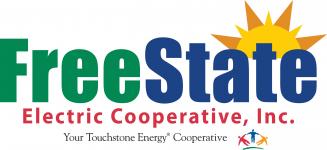Please call 1-800-794-1989 or use the SmartHub mobile app. To talk to a person, press zero.
To report an outage, call us at 1-800-794-1989 or utilize your SmartHub mobile app. If there is an emergent situation like power lines down over roadways, sparking lines, or fires, please dial 911 to report these types of emergencies. If lines are down on your property or you see trees on lines or other incidences that are urgent, please PRESS ZERO after dialing the contact number to speak directly to a member service representative or dispatcher. DO NOT LEAVE A MESSAGE for these types of reports. Voicemail is not checked outside of regular business hours.
FreeState provides outage updates on Facebook first.
For information on how to keep your family prepared for an emergency, visit our emergency preparedness page.
Some situations can arise causing FreeState to lose service from the supplier of its electricity. FreeState customers lose service because the electricity supplied to the cooperative’s lines is interrupted at its source. Although not a direct result of damage to FreeState lines, this situation still causes an outage. FreeState works closely with Evergy and KEPCo to update members.
Members should always report an outage. Members can report outages by calling the office at 800-794-1989 or by using the SmartHub mobile app. Every call helps. Outage calls also start the dispatching process of crews to the outage to begin restoring power as quickly and safely as possible.
If an outage occurs during regular business hours, your call is routed to our Topeka office first, and one of our member service representatives records your service address and enters it into our outage system. Typically, our member services representatives have little information initially about the outage so keep that in mind when making phone calls to the office. FreeState’s engineering and line departments are then notified by our outage system that there is an outage and crews are then dispatched to the location to begin troubleshooting.
If an outage occurs outside regular business hours, your calls go to our third-party call center to go through the same process.
Linemen are required to rotate being on call. If an outage occurs during that time, they are dispatched from their home to respond to the outage. Keep in mind that after-hours dispatching may take longer due to the nature of getting crews to the location. With only two linemen on-call after hours and many areas to cover, it may take longer than an outage occurring during the day when all crews are available and able to cover a larger area.
If after-hours outages are significant, FreeState may call in our employees to assist with after-hours calls or dispatching crews to the reported outages.
During storm season (spring and winter) advance notice is often given by weather bureaus. FreeState monitors these conditions to be as proactive as possible. Additional linemen and employees are placed on call to serve members quicker in the event of a significant outage or infrastructure damage caused by a storm. Scout teams can also be assembled to help categorize outages accordingly.
During outages, there are a few things that keep linemen from actively responding, like a fire in progress, a gas leak, and lightning. As soon as it is safe to do so, our crews are working to restore power no matter how cold, rainy, or snowy it gets.
FreeState monitors our electric system and often knows about outages on distribution circuits, power lines and substations, but we do not always know about outages impacting just a few members. To ensure we are aware of your outage, please call FreeState at 800-794-1989, or log in to SmartHub to report your outage.
Do not assume that someone else has reported your outage. By letting us know when you experience an outage, you help our crews.
Consider all fallen equipment or wires to be energized. Please report the issue to FreeState immediately. If there is a fire or medical emergency, please dial 911. Make sure your children, pets, and neighbors stay away from the power line and any objects it may be touching.
There are common reasons why outages occur. The chart shows that the majority of outages are weather-related events, but there are a few other causes.
Animals and trees making contact with wires can cause an outage. To limit this, we trim trees away from lines and install animal guards on pole-top transformers. We use squirrel guards, raptor protectors, and use other construction methods to keep animals out of harm’s way, and to keep them from causing an outage.
Other events like digging, construction, or auto accidents can cause damage to power poles or lines. In our area, it is also common to have farm-related outages like equipment getting tangled in the wire. It is essential to be aware of your surroundings while working on the farm. It not only ensures your safety but can limit damage-causing accidents.
Equipment failure can also be a reason for an outage. In rare cases, transformers and other equipment may fail during normal operations. Alternatively, an overload may also cause failure. We typically see these problems on extremely hot or high peak days from May through September.
Power supplier failure can also cause outages. As a distribution cooperative, we are reliant on Evergy and KEPCo. If one of those suppliers is experiencing an outage, it may impact our system.
On average it takes about 45 minutes to repair a transformer, and an average of four hours to replace power poles depending on the type of pole. Smaller single-phase poles take less time to repair than larger three-phase or transmission poles.
Outages may vary depending on the season and can last a few seconds to a few hours. Power can also be out for days when the situation is severe. Our crews are often out in dangerous weather conditions to restore power, especially when examining the lines by foot to find the source of an outage.
While we cannot control the weather, we can work to limit outages by maintaining equipment.
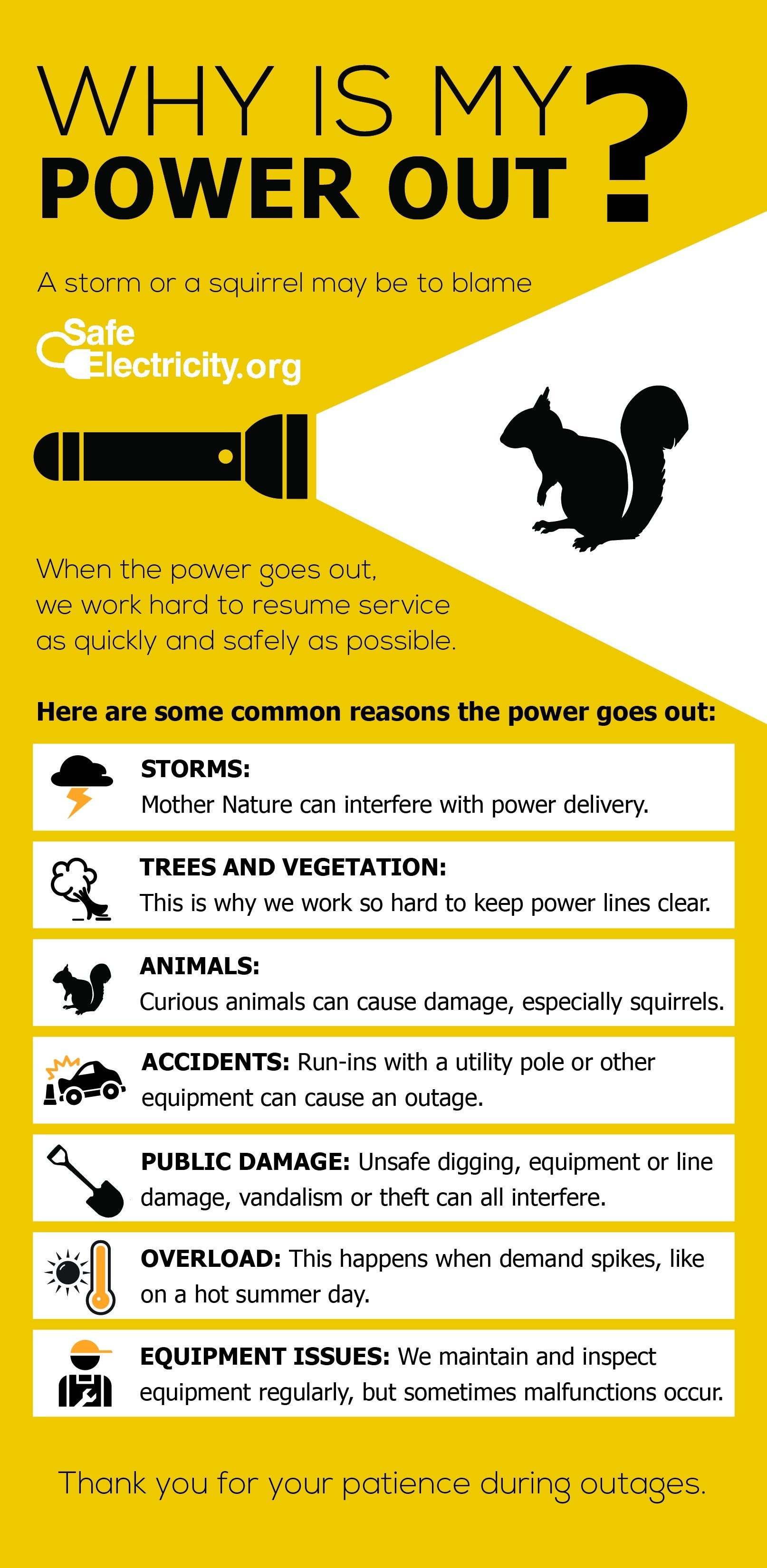
Once you've reported the outage by calling 800-794-1989 or via the SmartHub mobile app:
- Turn off all electrical appliances that were on when service was disrupted, leaving a lamp on so you’ll know when power is restored.
- Turn off the circuit breakers to major appliances. To help preserve food items, leave the doors to your refrigerator and freezer closed.
- Once power is restored, avoid overloading by turning appliances back on in 15-minute intervals.
Be patient. Our crew and staff are working as quickly as they can to get your power restored. Our crews will only work to restore power as long as it is safe to do so.
Report your outage. Call us as soon as the power goes out. Reporting your outage gives us the information we need to begin assessing the problem. During weather-related outages call volume can be high, so keep trying if you are not able to reach our office.
You can also report an outage using the SmartHub app on your mobile device.
Do not use Facebook or other social media platforms to report your outages. Reporting your outage is important.
Stay clear from weather damage. If you see downed power poles or lines STAY AWAY from them.
Call to report them, and return to your shelter.
If you see an electricity-related fire, please dial 911. Always report damaged equipment and assume wires are always live.
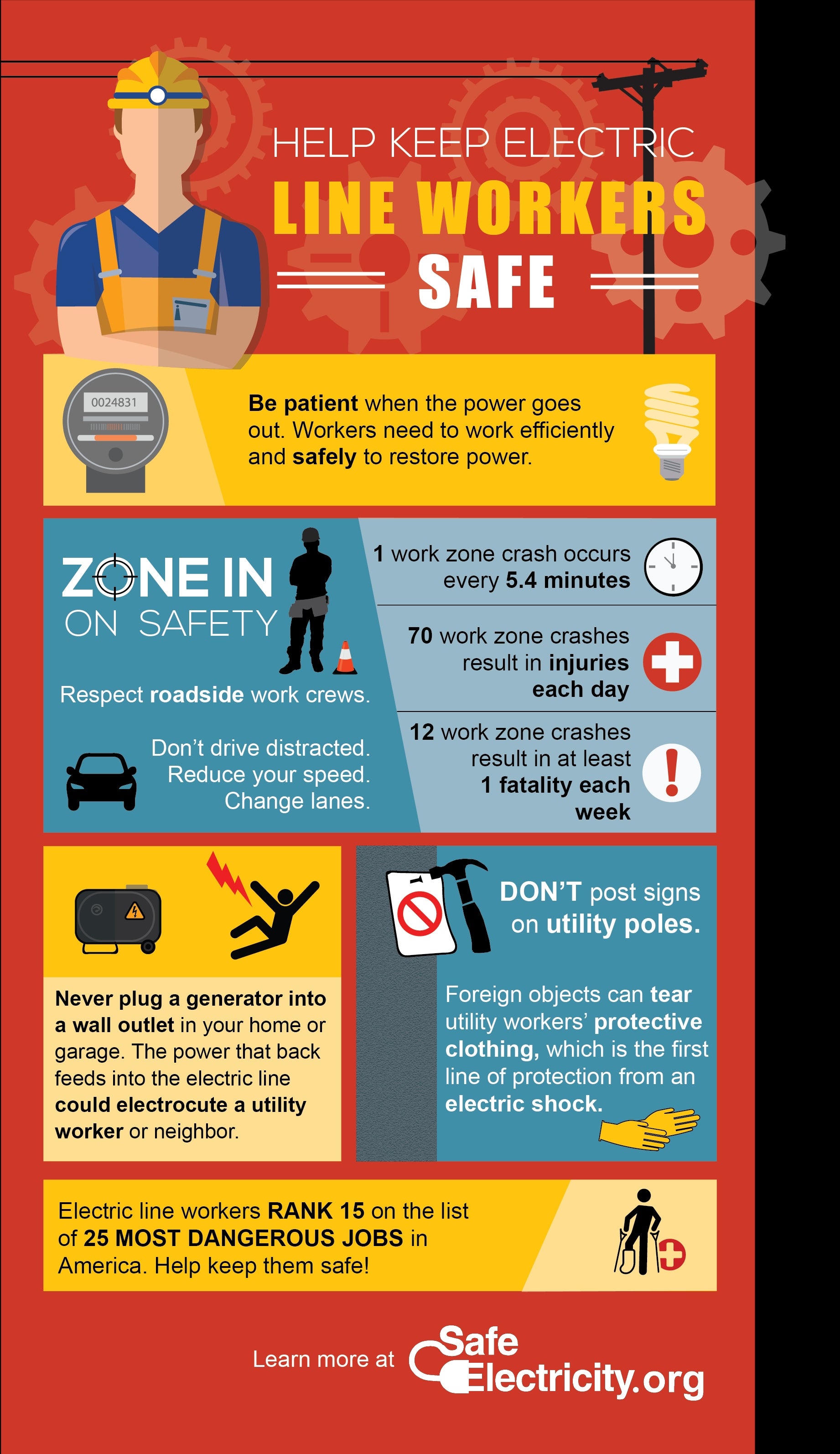
Before calling to report an outage, check your home’s breaker panel (and any outdoor disconnects) to make sure the outage is not due to a tripped breaker. Check to see if your neighbors are also out of power. This will help you determine if the problem exists within your home, or on FreeState’s system. If you determine the problem is outside your home, report your outage to FreeState.
Please have the following information available to efficiently report your outage: account number or phone number on the account and any details related to the outage. Please let us know if you heard a loud bang, saw damaged equipment, or if your neighbors have power, but you do not. We can record those notes into the system to help our crews.
When FreeState has an outage, we follow a protocol for restoring power quickly. Relatively small outages or isolated outages are dispatched in the order they are received or the availability of a crew. However, during significant outages, the priority in a major outage is emergency management, fire stations, and hospitals.
During an outage, we begin by determining the source. We assess our generation facilities and determine the source to begin repairs. There is a standard protocol for repairing and restoring during an outage. Our infrastructure is the backbone of delivering power. Transmission lines that carry electricity from generation stations are first on the list, followed by:
- Substations where high-voltage power from a transmission line is reduced for member usage.
- Distribution lines that carry electricity from substations to each neighborhood, or distribution hubs.
- Tap lines that serve direct homes and businesses.
- Individual lines to customers. These are the most difficult and time-consuming in the restoration process.
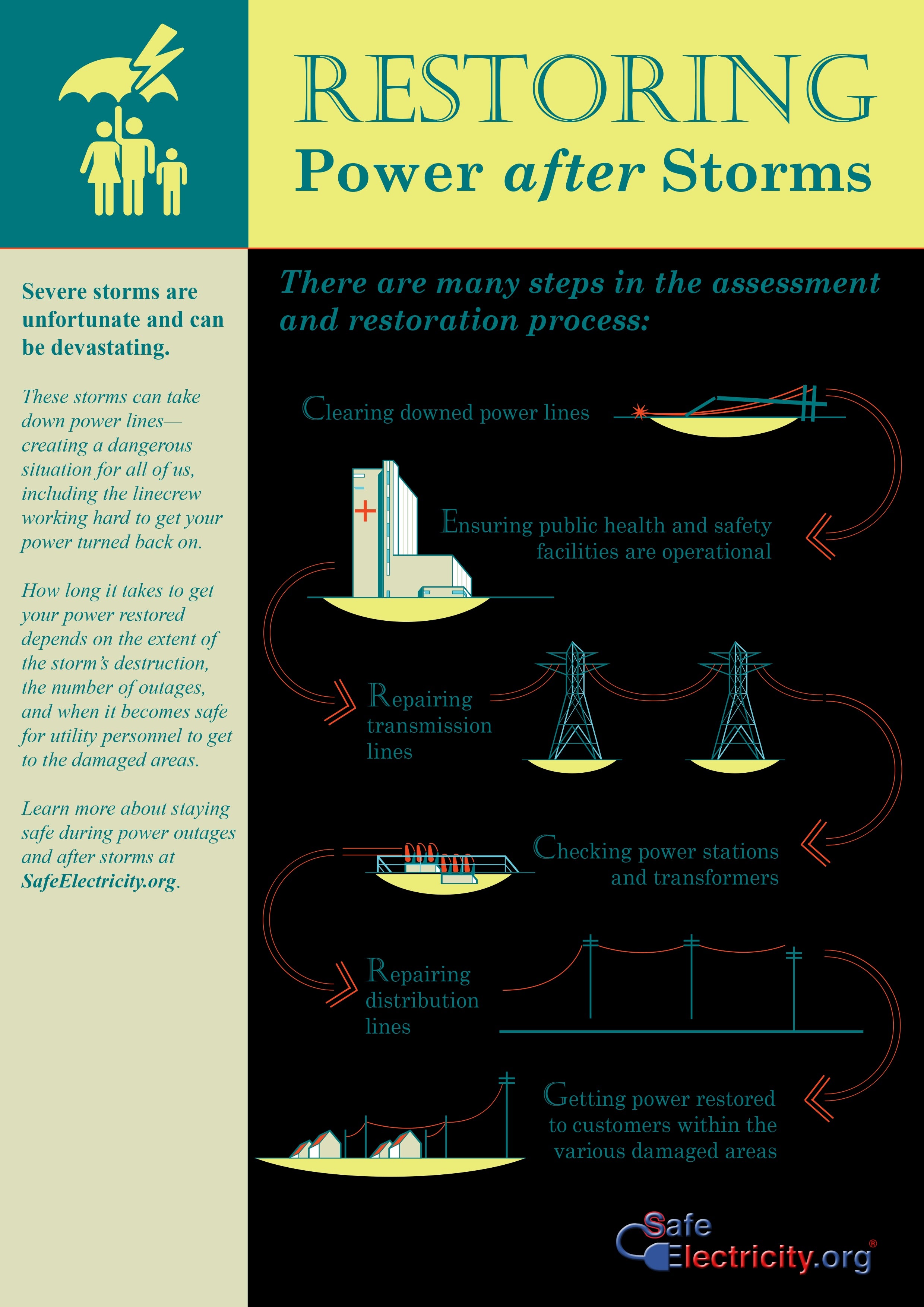
FreeState utilizes an automated outage-reporting system. However, by pressing zero you can always talk to a person. This system takes member calls and routes them to our automated outage management system. The automated system enables FreeState to receive and forward outage information to service crews more quickly than a manual call system and frees up our member services representatives so they can assist as efficiently as possible.
Planned outages are a part of upgrading and repairing equipment safely. They are used to limit longer, unplanned outages later. We notify you before a planned outage and make every effort to limit negative impacts. Before a planned outage a phone call alerting you of the outage is sent out.
Tree trimming is one maintenance practice we can do to help limit tree damage. FreeState has a designated tree crew at each office to work specifically on right-of-way clearance. They can also be called out to remove damaged trees so that linemen can get to an area to begin working safely.
Investing in new equipment and technology is also a way to maintain infrastructure by replacing aging equipment, installing upgrades for efficiency and building infrastructure that keeps up with the increasing demand for power.
Preparing for the worst is what we do. We train our employees to provide the safest, most efficient service to our members. Our member service representatives are trained to respond to your calls quickly, and our crews are trained to react and repair equipment as quickly as possible. We also have backups built into our infrastructure, and we keep a supply of materials on hand so we are ready whenever a replacement is needed.
The outage restoration process begins at the point where power feeds into FreeState’s system. This could be at a substation, transmission line, or a main distribution line. After these repairs have been made, crews work on remaining outages and correct the trouble, beginning with areas serving the greatest number of members and continuing until electricity is restored to each member’s home. Click here for more information on outage restoration.
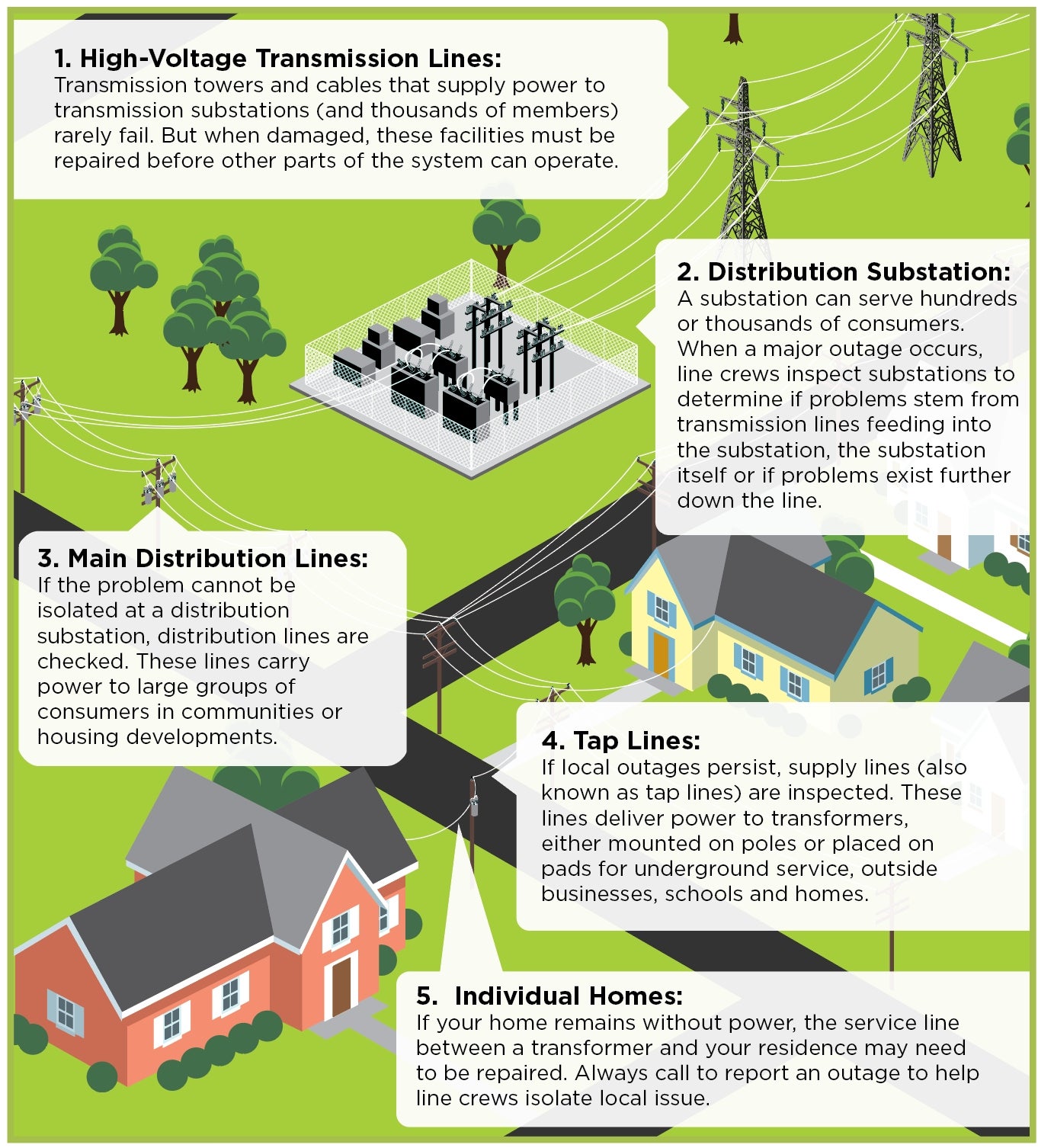
If you see a service crew passing but not stopping, it is because work must first be performed at a nearby location or device before electric service can be restored to your home. Following the outage restoration process ensures all members have their power restored as quickly and safely as possible. Please do not follow our service trucks because it is not safe to do so. Please stay clear of equipment and crews working to stay safe.
Remember to check and make sure your power is not out because of an electrical problem inside your home, such as a tripped breaker. If your neighbor has electricity and you do not, more than likely, they receive their electricity from a different power line or substation.
FreeState maintains a list of members who have medical equipment that requires electricity.
It is important to remember that extensive damage to our electric system could take numerous hours, or even several days, to completely repair. Members who must have electricity should be prepared with an emergency backup plan. The plan could include arrangements to move to an alternative location, use of a portable generator and/or installation of a battery backup on important electrical devices.
Each outage is a result of different circumstances, and some may take longer to identify and restore than others. As a result, outage restoration information may not be immediately available. There are specific areas of our service territory where lineman must physically walk through remote areas to investigate the cause of an outage, which can be time consuming. FreeState provides updates on the status of large outages on Facebook as it becomes available.
Please be aware that it does take time for the communications staff to gather information. Updates are given on Facebook first, and for catastrophic outages website information may be posted, but Facebook should be your first source of information.
Phone calls from the co-op should not be counted on for updates. There is not always the ability to make these calls from our office.
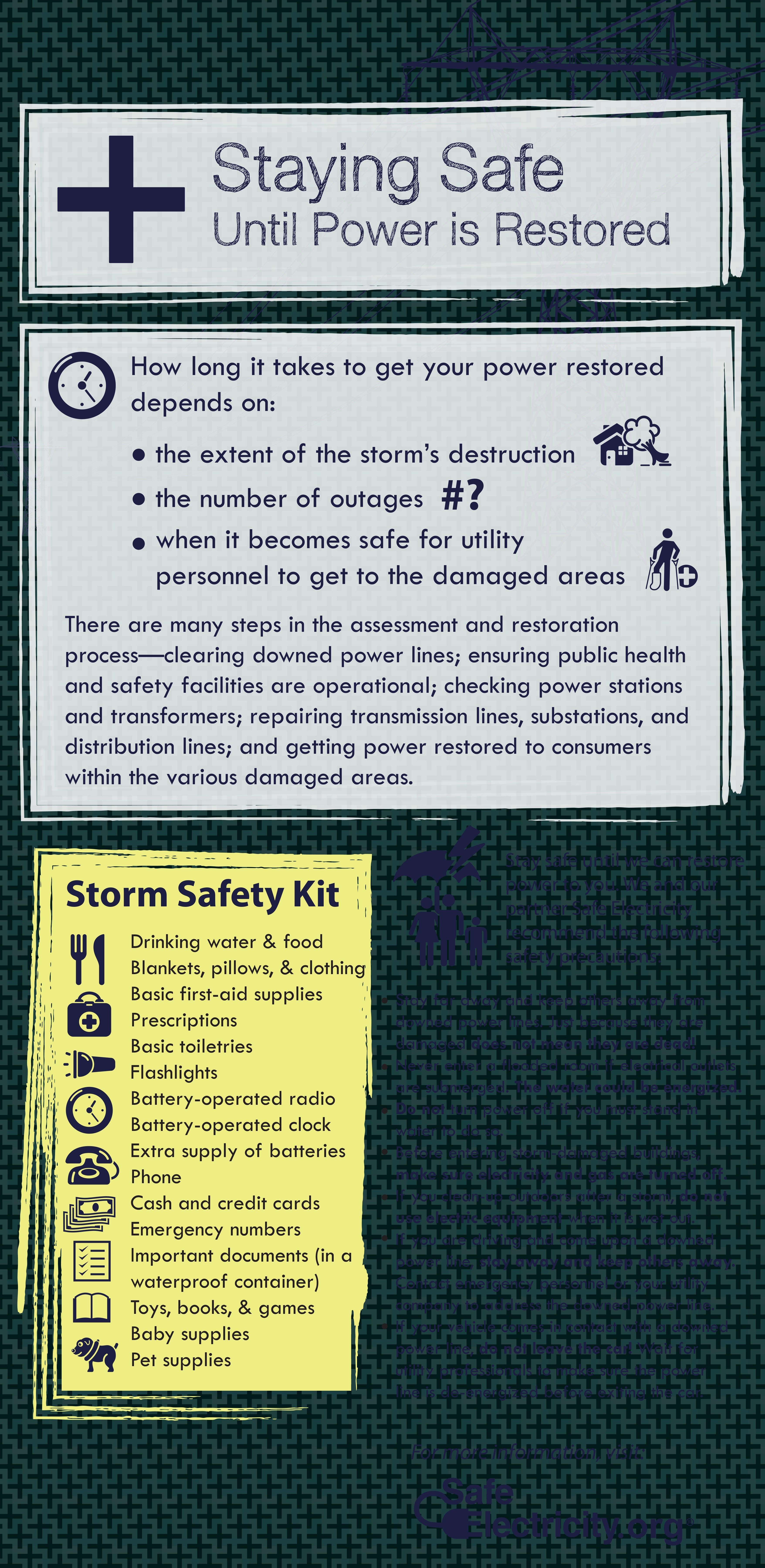
FreeState cannot guarantee continuity of service, so there is not a requirement that we pay for food that might spoil due to electric service interruptions. Food in a chest freezer will keep for 72 hours if you do not open the freezer frequently. You can also place heavy blankets on the freezer to slow defrost.
To minimize the loss of food during a power outage, limit the number of times you open your refrigerator or freezer door. If the doors remain closed, refrigerated food can remain safely cold for about four hours; frozen food can remain safe for two days if the freezer is full and the doors remain closed.
Download a Guide to Food Safety
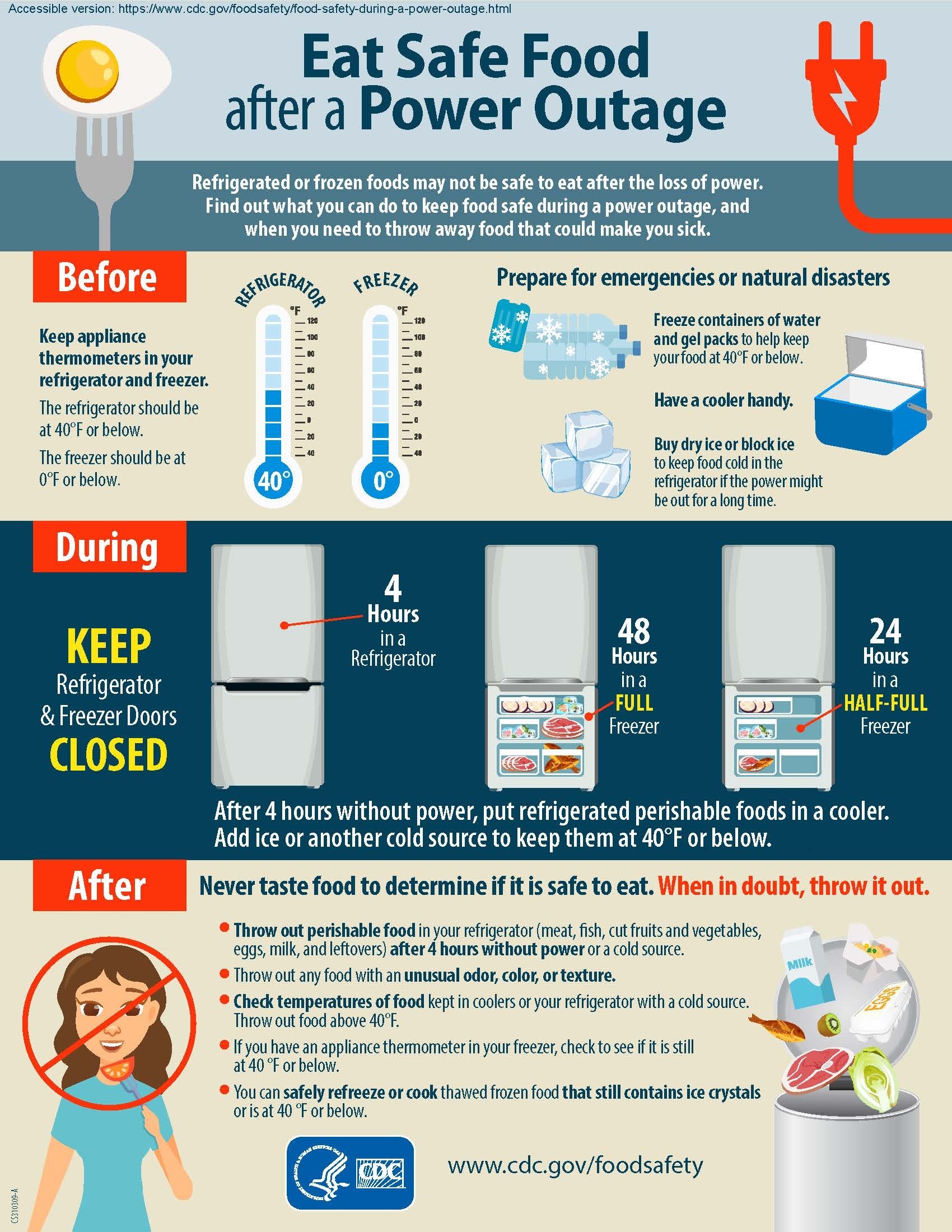
A lightning strike or downed power line can send a surge of electricity through your home, potentially damaging appliances. Computers, TVs, and other electronic equipment are expensive investments that are worthy of protecting from storm-related damage. Surge protectors provide a defense against power spikes and surges.
FreeState cannot guarantee continuity of service, so there is not a requirement that we pay for the damage. Following a storm, it’s possible that service restored in one spot could be temporarily impacted by work elsewhere, including an accident or emergency condition that requires us to temporarily turn the power off at the request of first responders. We encourage members to consider precautions, such as unplugging, turning off, or limiting the use of electronically sensitive and/or non-essential appliances.
Underground lines are not outage proof. Underground lines can present restoration challenges. It also takes a longer amount of time and specialized equipment to find problems with underground cables. Buried utilities are quite expensive to build and maintain, and while some areas are successful with them, they are not feasible everywhere.
A generator can be a wonderful tool during an outage, especially if you have special medical needs and require electricity. But, it can also be extremely dangerous if used improperly. Be aware that it’s against the law, and a violation of electrical codes, to connect a generator to your home’s electrical circuits without a generator transfer switch automatic-interrupt device. Otherwise, if a generator is online when electrical service is restored, it can become a major fire hazard. In addition, the improper connection of a generator to your home’s electrical circuits may endanger service crews helping to restore power in your area.
